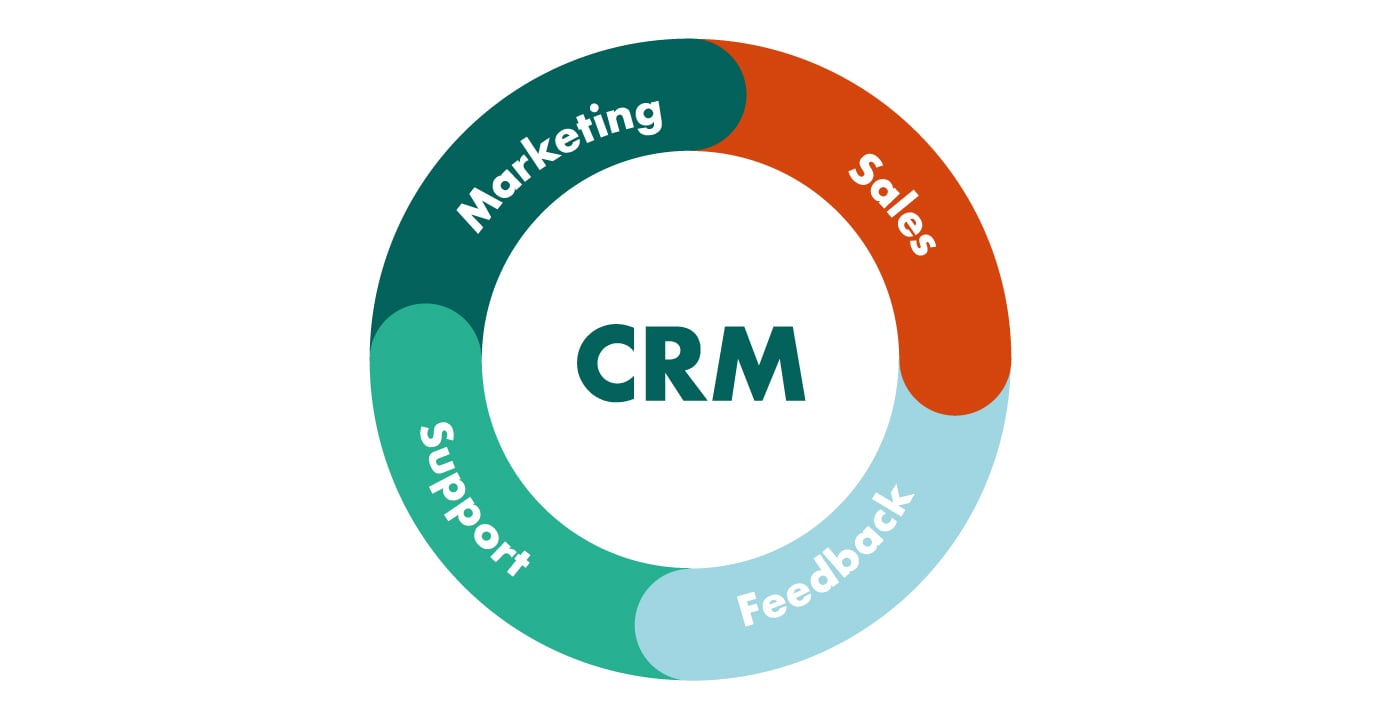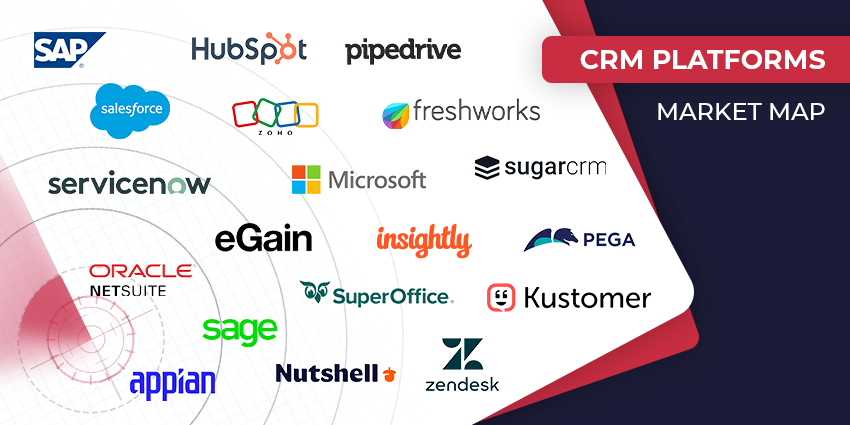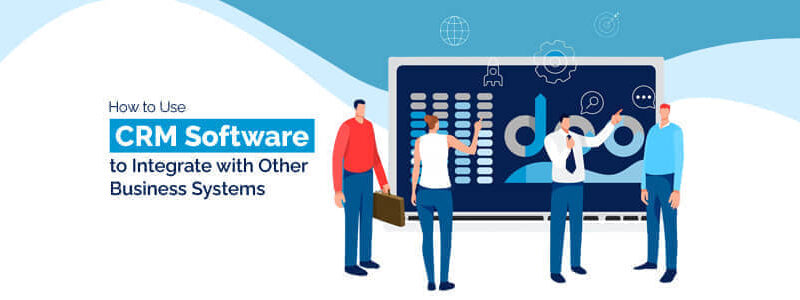In today’s fast-paced business environment, coordinating sales, marketing, and support is more critical than ever. A unified Customer Relationship Management (CRM) system offers a comprehensive solution, integrating these key functions into a single, streamlined platform.
By centralizing data and processes, businesses can enhance productivity, improve customer experiences, and drive better outcomes.
This article explores how a unified CRM can transform the way organizations operate, fostering seamless collaboration and delivering actionable insights that fuel growth and customer satisfaction. Discover the benefits and strategies for implementing a unified CRM that aligns your teams and boosts your bottom line.
Unify Sales, Marketing, and Support in One CRM
A unified Customer Relationship Management (CRM) system integrates sales, marketing, and support functions into a single platform, streamlining processes, enhancing collaboration, and providing a comprehensive view of customer interactions.
By centralizing data and workflows, businesses can make more informed decisions, improve customer satisfaction, and drive overall growth.
Streamlined Data Management
A unified CRM system ensures that data from sales, marketing, and support is centralized and standardized. This eliminates the need for multiple, siloed systems, reducing the risk of data inconsistencies and improving data quality.
With a single source of truth, teams can collaborate more effectively, ensuring that all customer interactions are accurately recorded and accessible to everyone who needs them.
Enhanced Customer Insights
By unifying sales, marketing, and support, businesses gain a holistic view of their customers. This comprehensive insight allows for more personalized and targeted marketing campaigns, better sales strategies, and more effective support.
Understanding the full customer journey helps in identifying opportunities, addressing pain points, and building stronger relationships, ultimately leading to higher customer satisfaction and loyalty.
Efficient Workflows and Processes
A unified CRM system streamlines workflows across departments, making processes more efficient and cohesive. Automated tasks, such as lead nurturing, case management, and campaign tracking, reduce manual effort and minimize errors.
This integration also facilitates better communication and collaboration, as teams can easily share information and work together on shared goals, improving overall productivity and effectiveness.
| Function | Benefits |
|---|---|
| Sales | Centralized customer data, automated lead management, improved forecasting |
| Marketing | Personalized campaigns, comprehensive customer insights, improved ROI |
| Support | Faster issue resolution, consistent customer service, enhanced customer satisfaction |
What is CRM in sales and marketing?

Customer Relationship Management (CRM) in sales and marketing is a comprehensive strategy and technology used to manage and analyze interactions with current and potential customers.
It involves using software to track and improve all aspects of an organization’s interactions with its customers, from initial contact to post-sale support. The primary goal of CRM is to optimize business processes to enhance customer satisfaction, retain existing customers, and attract new ones.
CRM systems provide a centralized platform for sales teams to manage leads, customer data, and sales activities, while marketing teams can use them to analyze customer behavior, segment audiences, and create targeted marketing campaigns.
Key Features of CRM Systems in Sales and Marketing
CRM systems offer a wide range of features designed to streamline and improve the sales and marketing processes. Some of the key features include:
- Customer Data Management: CRM systems collect and organize customer data, including contact information, purchase history, and interaction records, providing a comprehensive view of each customer.
- Sales Automation: These systems automate repetitive tasks such as lead tracking, opportunity management, and pipeline monitoring, allowing sales teams to focus on building relationships and closing deals.
- Marketing Automation: CRM platforms can automate marketing activities like email campaigns, social media posts, and lead nurturing workflows, helping to improve the efficiency and effectiveness of marketing efforts.
Benefits of CRM in Sales and Marketing
Implementing a CRM system can bring numerous benefits to sales and marketing operations. Some of the most significant advantages include:
- Improved Customer Insights: By centralizing customer data, CRM systems provide valuable insights into customer behavior and preferences, enabling more personalized and effective interactions.
- Enhanced Sales Productivity: Automated tools and workflows help sales teams manage their activities more efficiently, leading to increased productivity and higher conversion rates.
- Stronger Customer Relationships: CRM systems facilitate better communication and engagement with customers, helping to build trust and loyalty over time.
Challenges and Considerations in Implementing CRM
While the benefits of CRM are clear, there are also challenges and considerations to be aware of during implementation. Some of these include:
- Data Accuracy and Integrity: Ensuring that customer data is accurate and up-to-date is crucial for the effectiveness of a CRM system, requiring robust data management practices.
- User Adoption: Encouraging employees to use the CRM system consistently can be a challenge, often requiring training and support to ensure that the system is fully utilized.
- Integration with Existing Systems: Integrating a CRM system with other business tools and processes can be complex, requiring careful planning and technical expertise.
What is a unified CRM?

A unified Customer Relationship Management (CRM) system is a comprehensive platform designed to integrate and streamline various customer engagement processes across an organization.
Unlike traditional CRM systems that often operate in silos, a unified CRM consolidates data from multiple sources, channels, and departments, providing a single, cohesive view of the customer.
This integration enhances data accuracy, improves customer insights, and facilitates better decision-making across sales, marketing, and customer service functions.
Benefits of a Unified CRM
A unified CRM offers several advantages that can significantly impact an organization’s performance:
- Enhanced Data Accuracy: By centralizing data from various sources, a unified CRM reduces the likelihood of errors and inconsistencies, ensuring that all departments have access to accurate and up-to-date customer information.
- Improved Customer Insights: The consolidated data allows for a more comprehensive understanding of customer behavior, preferences, and needs, enabling personalized marketing and service strategies.
- Streamlined Workflows: Integration across departments ensures that processes are more efficient, reducing redundant tasks and improving overall operational efficiency.
Key Components of a Unified CRM
To be effective, a unified CRM system typically includes several key components:
- Data Management: This involves collecting, organizing, and analyzing customer data from various touchpoints, including online interactions, sales transactions, and service calls.
- Customer Interaction Management: This component handles all customer communications and engagement, whether through email, phone, social media, or other channels, ensuring a seamless and personalized experience.
- Analytics and Reporting: Advanced analytics tools provide insights into customer behavior, sales performance, and marketing effectiveness, helping organizations make data-driven decisions.
Implementing a Unified CRM
Successfully implementing a unified CRM system requires careful planning and execution:
- Data Integration: Ensure that all relevant data sources are integrated into the CRM system, and that data is cleaned and standardized to maintain accuracy.
- Training and Support: Provide comprehensive training for all users to ensure they understand how to use the system effectively and can leverage its features to enhance customer interactions.
- Continuous Improvement: Regularly review and update the CRM system based on user feedback and changing business needs to maximize its value and effectiveness.
Which CRM is best for sales and marketing?

Choosing the best Customer Relationship Management (CRM) system for sales and marketing depends on various factors such as the size of your business, specific needs, budget, and the features you require.
Some of the most popular CRMs that are highly regarded for sales and marketing include Salesforce, HubSpot, and Zoho CRM. Each of these platforms offers robust features and integrations that can help streamline your sales and marketing processes. Here’s a detailed look at each:
1. Salesforce: A Comprehensive CRM for Enterprise-Level Needs
Salesforce is often considered the gold standard for CRMs, especially for larger enterprises. It offers a wide array of features and integrations, making it a powerful tool for both sales and marketing teams. Some key features include:
- Advanced Sales Automation: Salesforce provides extensive tools for managing leads, opportunities, and customer interactions, which are essential for driving sales growth.
- Marketing Automation: The platform includes robust marketing automation capabilities, allowing you to create and manage email campaigns, track lead engagement, and analyze marketing performance.
- Customization and Integration: Salesforce is highly customizable and can integrate with a wide range of third-party tools, making it a versatile solution for businesses with complex needs.
2. HubSpot: An All-In-One CRM for Small to Medium Businesses
HubSpot is a user-friendly CRM that is particularly well-suited for small to medium-sized businesses. It offers a comprehensive suite of tools that can help you manage all aspects of your sales and marketing efforts. Key features include:
- CRM and Contact Management: HubSpot provides a robust CRM system that allows you to manage your contacts, leads, and customer interactions in one place.
- Marketing Hub: The Marketing Hub includes tools for creating and managing landing pages, email campaigns, and social media marketing, as well as analytics to track your marketing performance.
- Sales Hub: The Sales Hub offers tools for tracking leads, managing deals, and automating sales tasks, helping you to close more deals and improve your sales process.
3. Zoho CRM: A Flexible and Affordable Option
Zoho CRM is a flexible and affordable CRM that is suitable for businesses of all sizes. It offers a range of features that can help you manage your sales and marketing activities effectively. Key features include:
- Lead Management: Zoho CRM provides tools for capturing, nurturing, and converting leads, which is crucial for sales success.
- Marketing Automation: The platform includes marketing automation tools that allow you to create and manage email campaigns, as well as track and analyze your marketing efforts.
- Customization and Integration: Zoho CRM is highly customizable and can integrate with a variety of third-party tools, making it a versatile solution for businesses with specific needs.
Frequently Asked Questions
How does unifying sales, marketing, and support in one CRM benefit a business?
Unifying these departments in one CRM enhances collaboration and data consistency. It streamlines communication, allowing for a more cohesive customer experience. This integration ensures that all teams have access to the same up-to-date information, leading to more informed decisions and improved customer satisfaction.
What features should a CRM have to effectively unify sales, marketing, and support?
A unified CRM should include features like shared customer profiles, automated workflows, integrated analytics, and real-time reporting. It should also support cross-departmental collaboration tools, customer journey mapping, and personalized communication capabilities to ensure seamless and efficient processes across all teams.
Can a unified CRM improve customer retention and loyalty?
Yes, a unified CRM can significantly improve customer retention and loyalty by providing a holistic view of customer interactions. This allows for more personalized and timely responses, which can enhance customer satisfaction. By addressing customer needs more effectively and consistently, businesses can build stronger, long-lasting relationships.
How can a company ensure successful implementation of a unified CRM system?
To ensure successful implementation, companies should involve key stakeholders from sales, marketing, and support. Training and ongoing support are crucial, as is clear communication about the benefits and changes. Regularly reviewing and adjusting the system based on user feedback and business needs can also help ensure that the CRM meets its intended goals.


